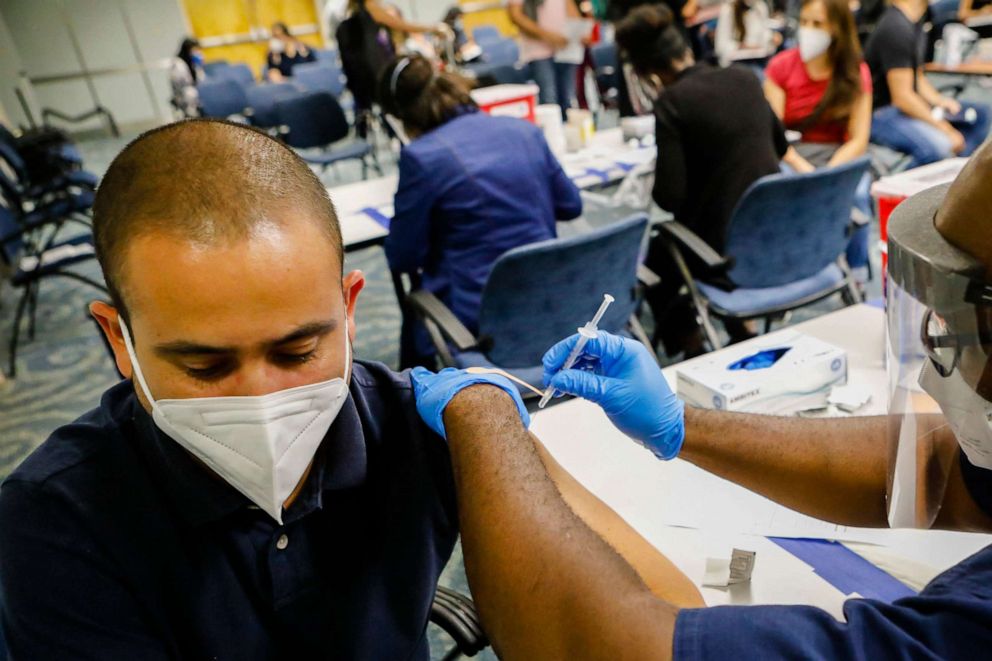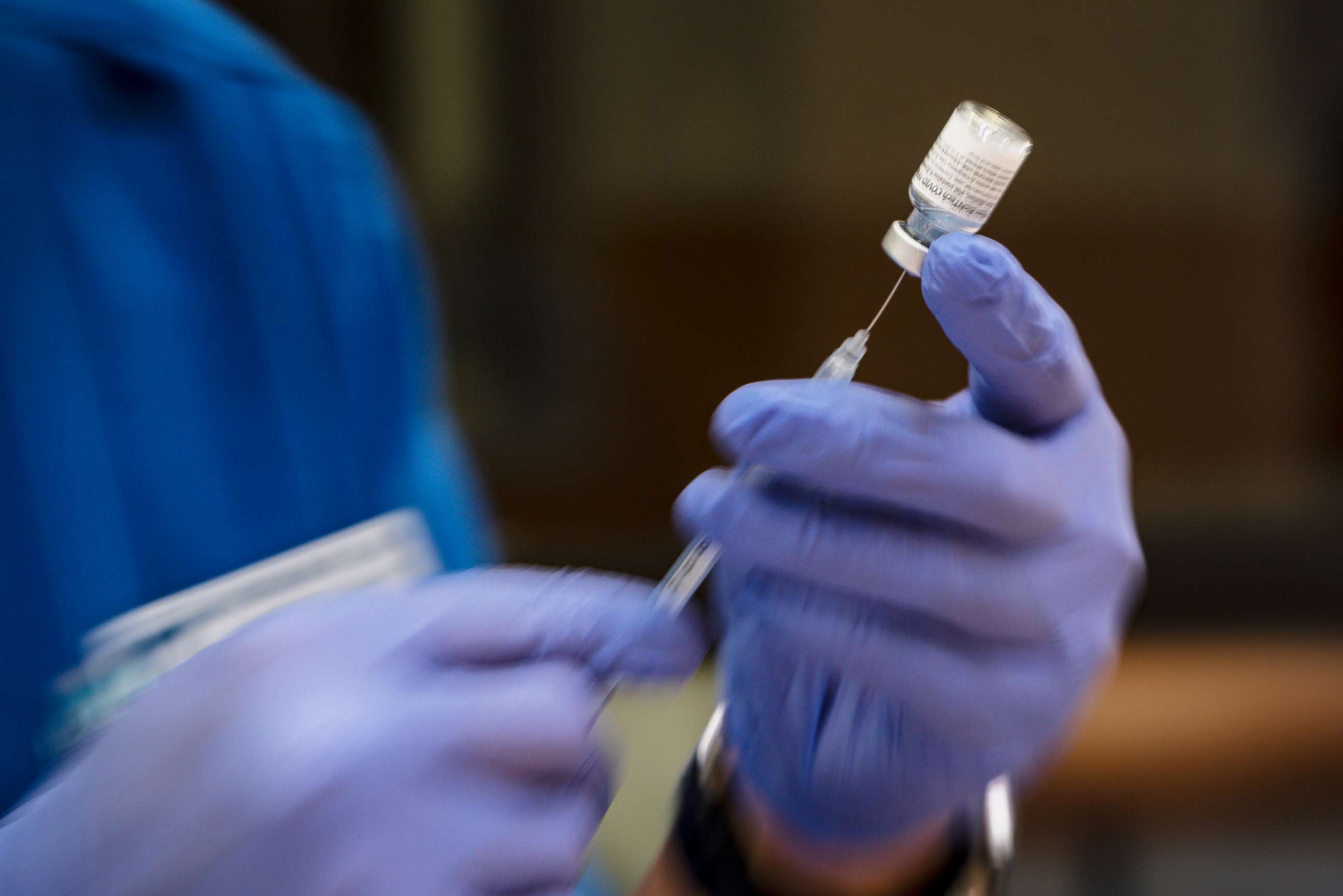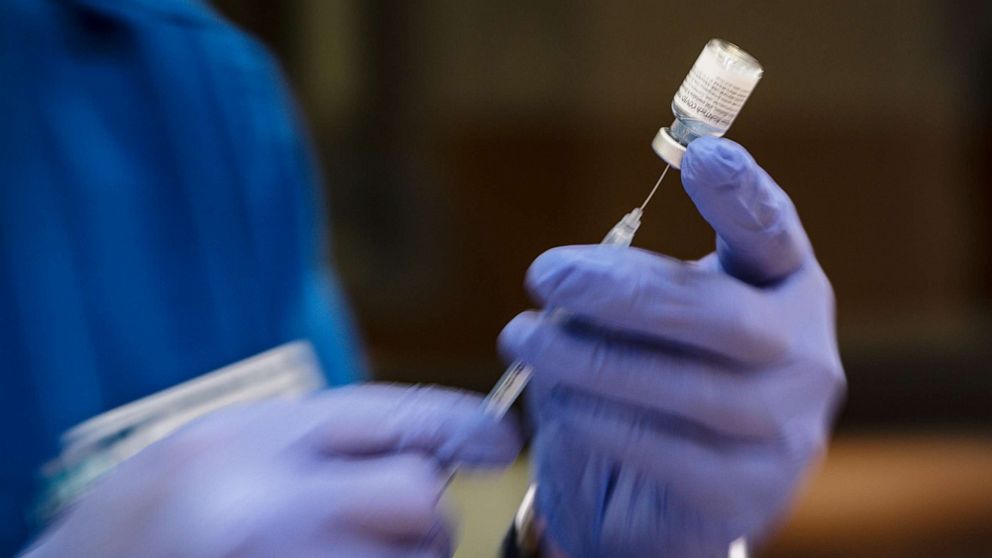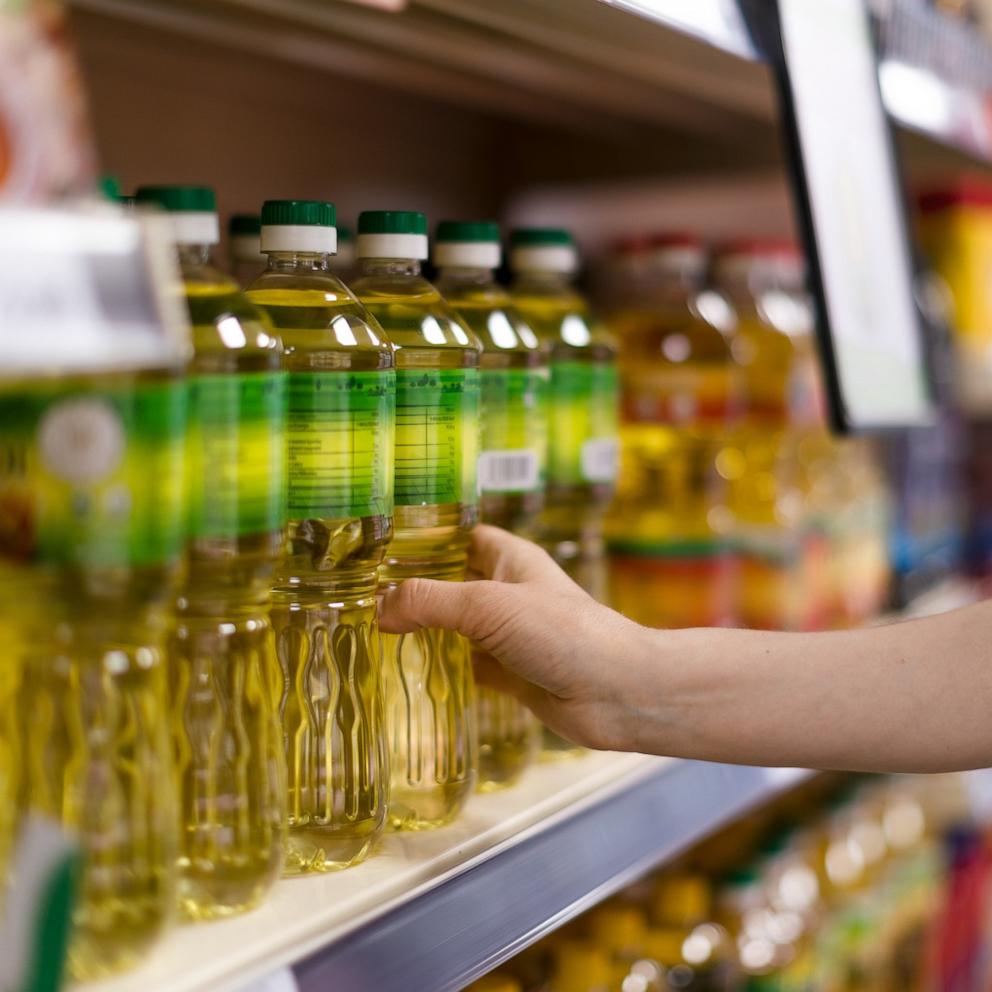3 COVID-19 vaccine doses can improve immunity in solid organ transplant recipients: Study
An extra boost of a vaccine may mean more protection for organ transplant recipients in their fight against COVID-19, a new study finds.
Solid organ transplant recipients, including kidney, liver, heart and lungs, are part of a larger group of immunocompromised individuals, or those with weaker immune systems. Unlike the robust immune response and protection found in their immunocompetent counterparts, these individuals have been shown to have a blunted immune response when given COVID-19 mRNA vaccines.
These clinical observations are not surprising. Immunocompromised individuals were excluded from studies of COVID-19 mRNA vaccines.
Due to the administration of immune-modulating medications post-transplant, frequent procedures and multiple interactions with healthcare, transplant patients are more vulnerable to COVID-19. When combined with ineffective vaccination, these patients are further susceptible to breakthrough infections and dangerous complications.
New research from Johns Hopkins University Hospital shows that there may be a way to improve COVID-19 immunity in these patients: give them a third dose of the COVID-19 vaccine.
The study, published in the Annals of Internal Medicine, followed 30 solid organ transplant patients at Johns Hopkins who had received two doses of a COVID-19 mRNA vaccine, of either Pfizer or Moderna. COVID-19 immunity was estimated via antibody testing and was graded from no immunity to high immunity based on the level of COVID-19 antibodies found in the patients’ blood.
After two doses, 80% of these immunocompromised patients had no immunity. 20% of these patients had “low immunity.” With the addition of a third COVID-19 vaccine, either Johnson & Johnson, Pfizer or Moderna, immunity increased in 33% of those with previously no immunity and in 100% of those with previously “low immunity.”

“This is a [study of] about 30 patients. Not a 200-patient formal trial with standardized timing and endpoints but it’s enough preliminary data to be very encouraging,” Dr. Dorry Segev, the associate vice chair of the Department of Surgery at Johns Hopkins University Hospital and author of the study, told ABC News.
“It gives me hope that transplant patients have immune systems that ultimately will be able to mount an effective response to the vaccine but might just need some help doing it. Like, for example, a third dose,” Segev said.
While the vaccine response was promising, experts note that immunity varied from patient to patient. This variability is likely dependent on patients’ transplant-associated medications and the time since their transplant.
“Those on antimetabolites,” a class of transplant-associated medications, “have a lower chance of a good antibody response,” said Segev. “Those who are closer to their transplant, and likely on a higher overall level of immunosuppression, are probably going to have a more challenging [response]. The further out from the transplant you are, the better of a chance you have of getting an immune response.”
While COVID-19 antibody testing was utilized in this study, the U.S. Centers for Disease Control and Prevention continues to not recommend its use in the general public. As stated on the CDC website, “antibody testing is not currently recommended to assess for immunity to COVID-19 following COVID-19 vaccination or to assess the need for vaccination in an unvaccinated person.”
“Going to get antibody tested on your own, right now, is going to lead to more chaos than information,” Segev said.

Patients with strong immune systems are more likely to have a robust immune response to vaccines. Therefore, an antibody test that shows “no response” is likely to be a false negative.
There is immunity developed at the cellular level after infection and vaccination that is more challenging to measure. These T and B cell responses may offer protection regardless of what an “antibody test” dictates.
The CDC also warns that each antibody test is different. Some offer binary testing, a simple yes or no result, whereas others indicate a spectrum of immunity. The clinical significance of antibody testing is still up in the air for the general population. However, in specific patient populations and clinical studies, it can be extremely helpful.
“In the context of a physician discussion or a trial, testing is very important. It functions as a reasonable surrogate for what else is going on under the surface,” Segev said.
With nearly 39,000 solid organ transplants in 2020 and 17,286 in this year alone, according to the United Network for Organ Sharing, a significant number of patients may benefit from an additional COVID-19 vaccine. Due to low immunity, these patients already require additional doses of the hepatitis B and influenza vaccine in order to establish immunity. A third dose of a COVID-19 vaccine series would therefore not be unreasonable.
Further clinical testing is needed to better understand the use of three COVID-19 vaccines in immunocompromised patients.
“These results are too small to recommend three vaccine doses for such patients,” Dr. Vincent Racaniello, Higgins professor and physician in the Department of Microbiology & Immunology at Columbia University, who was not involved in the study, told ABC News. “The results show a larger clinical trial should be done to assess the value of a third dose in this population.”
“My recommendation for any transplant patient today would be to get vaccinated but act unvaccinated,” said Segev. “I would not recommend for transplant patients right now to assume that they have protective immunity," he said.
“Currently, such patients must be carefully monitored for infection and, if positive, should be treated as soon as possible with monoclonal antibodies,” Racaniello said.
Natalie S. Rosen, M.D., is an internal medicine resident physician at The Johns Hopkins Hospital and a contributor to the ABC News Medical Unit.




